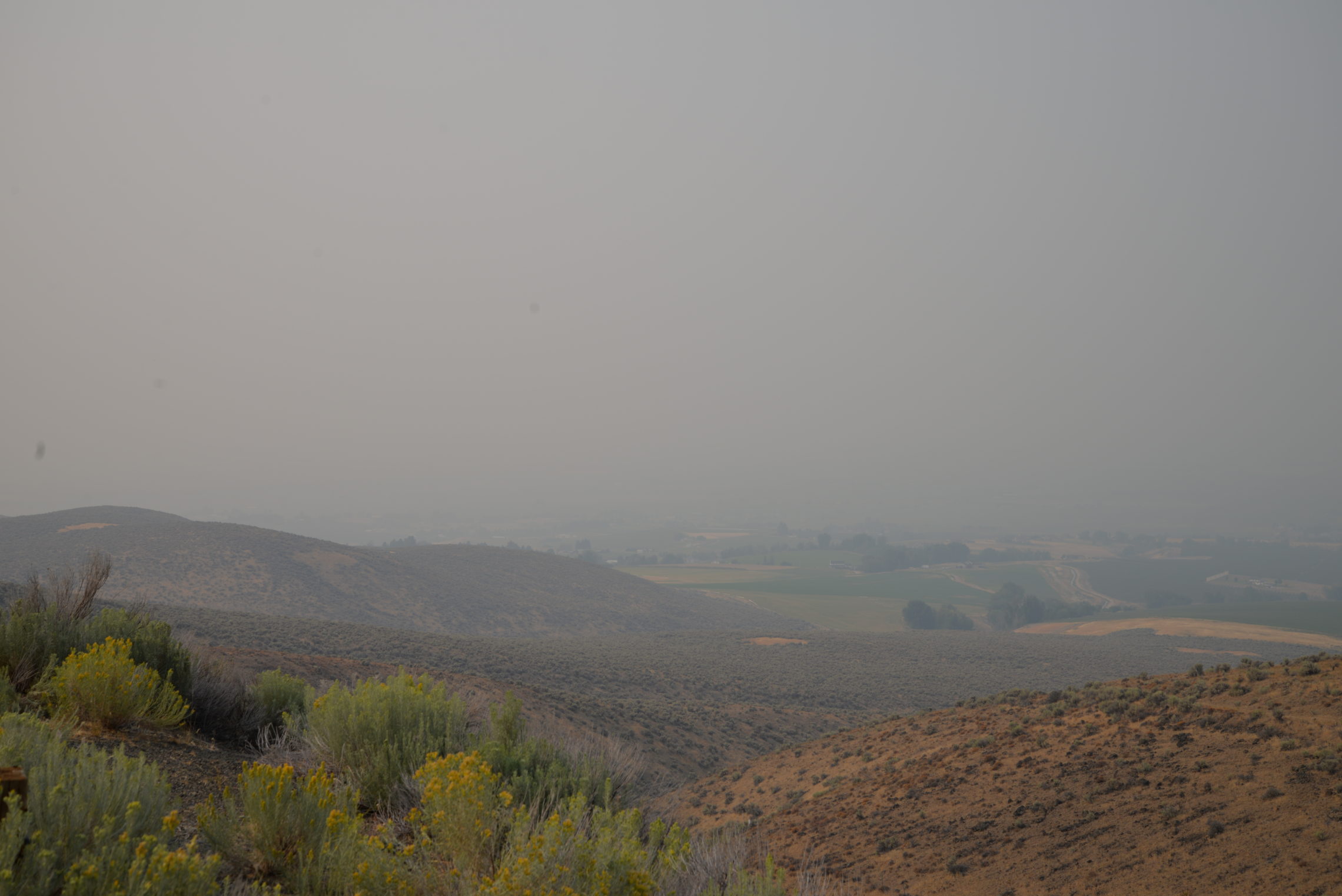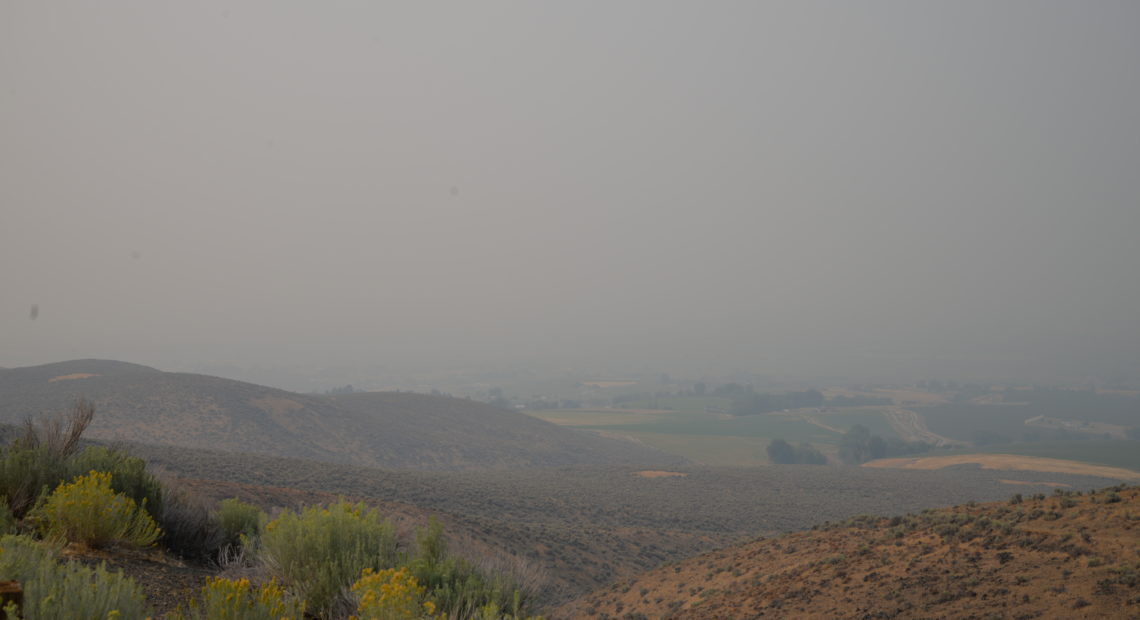
Smoke Makes Washington Farmworkers Cover Up, But No Regulations Require Provided Masks
You’ve probably seen and felt it this week: a blanket of grey haze over large parts of the region.
Smoke from wildfires in Washington, Oregon, British Columbia and California has led to poor air quality, causing health experts to caution: minimize your exposure.
So how do people who work outdoors fare?
Clarita Gariba Garibay harvests blueberries and Gala apples, working in smoky conditions since last week. She is a farmworker in Paterson, Washington, close to Oregon near the Columbia Gorge.
While her employer did provide face masks, she opted to use a bandanna. So did most of her coworkers.
“Les afecta a veces, los marea, que les duele la cabeza, y pues les arden los ojos a muchos.”
“It affects some of them, makes them dizzy, their head hurts, and their eyes burn,” Garibay said in Spanish.
RESOURCE: Get Updated Smoke And Air Quality Information From The Washington Smoke Blog
Luckily, she says, she’s felt fine so far.
According to Washington’s Department Labor & Industries, employers aren’t required to provide masks at work during wildfire season. While hot temperatures may send farmworkers home early, that’s not necessarily true when smoke persists.
Lori Kelley is a director and registered nurse at the Yakima Valley Farmworkers Clinic.
“For our outside workers, like the farmworkers who are in the middle of harvest or just farmers, it’s time to take extra precautions, trying to take breaks,” Kelley said. “Bandanas and wet towels cover your nose and mouth, but they’re not actually effective.”
She says bandanas don’t filter out the tiny particulate matter, or pollutants from wildfire smoke. She advises those who work outside buy something like an N-95 mask, which will run about $5 to $15 at a hardware store.
HEPA filters can also be used indoors. Health officials say to check with your primary care provider for any prolonged symptoms or if you’re a member of a vulnerable population, such as elderly, young, asthmatic, or someone who works outside a lot.
RESOURCE: Get Updated Smoke And Air Quality Information From The Washington Smoke Blog
Copyright 2018 Northwest Public Broadcasting
Related Stories:
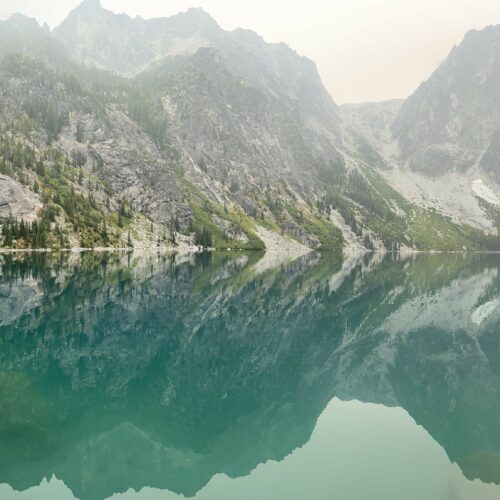
Trash piling up, wildfires too big to fight: What wild lands might look like without workers
Mountain peaks are reflected in the waters of Lake Colchuk, located in the Alpine Lakes Wilderness Area. Smoke from a nearby wildfire hangs in the air. (Credit: Theresa Rivers) Listen
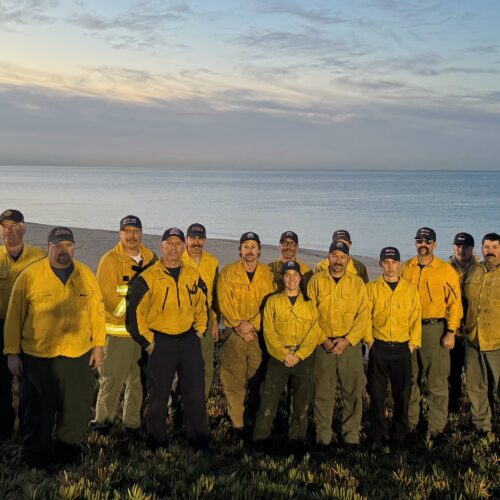
Final cohort of Idaho firefighters homebound after two weeks in California
Idaho Task Force Four poses for a photo near the ocean at the end of their two-week service in Los Angeles, California. (Courtesy: Billy Monahan) Listen (Runtime 1:03) Read The
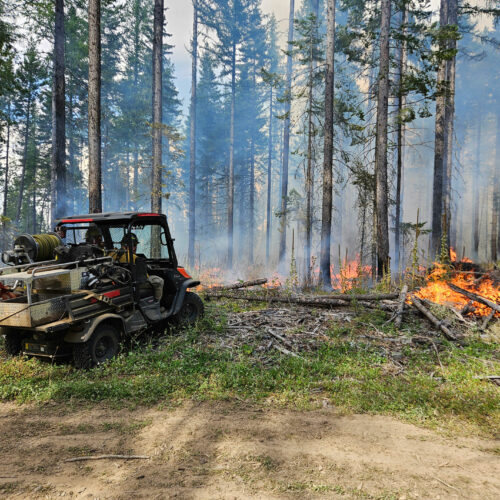
Prescribed fires help manage forests in the Northwest
As wildfire season winds down, crews around Washington and Oregon perform prescribed fires.

